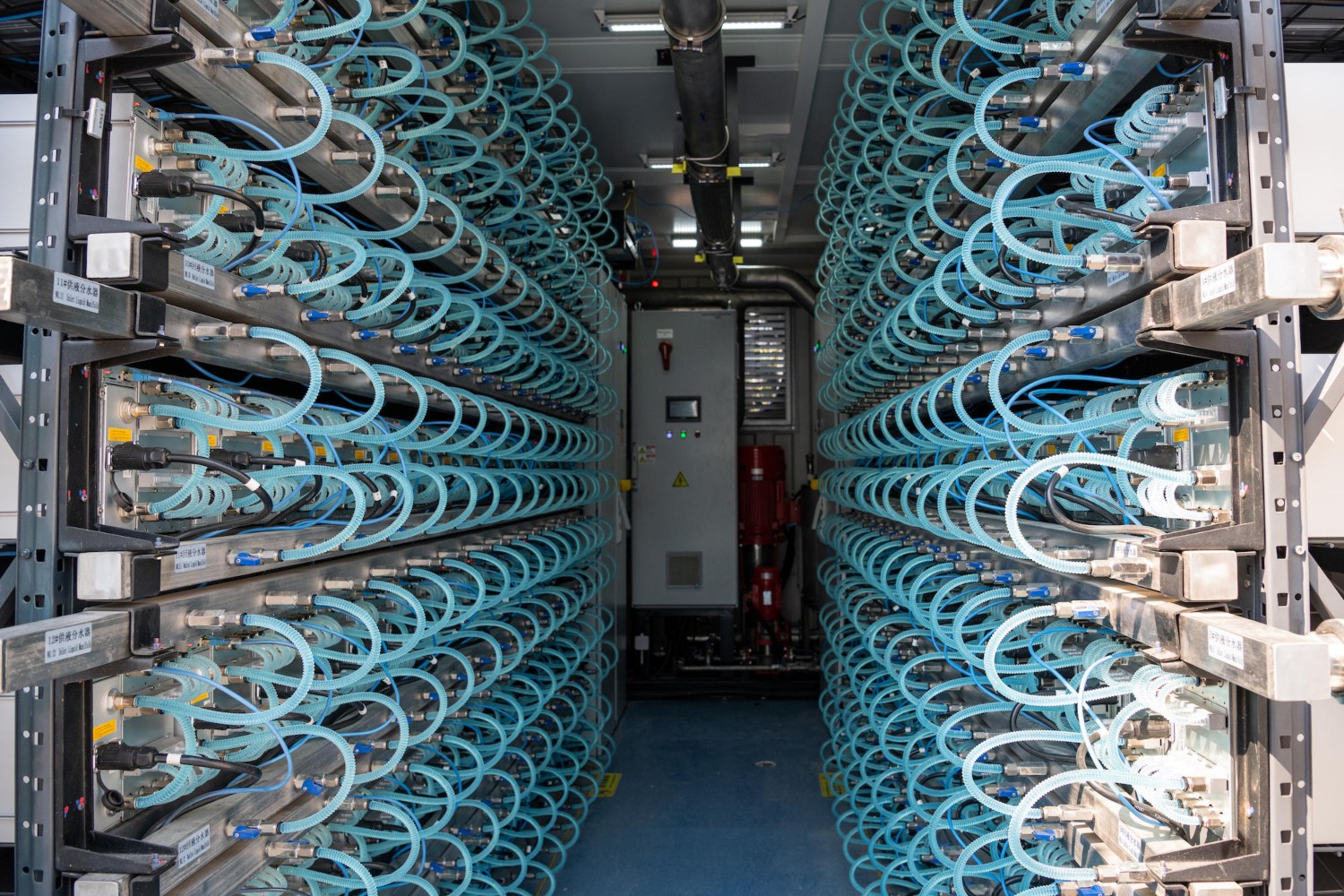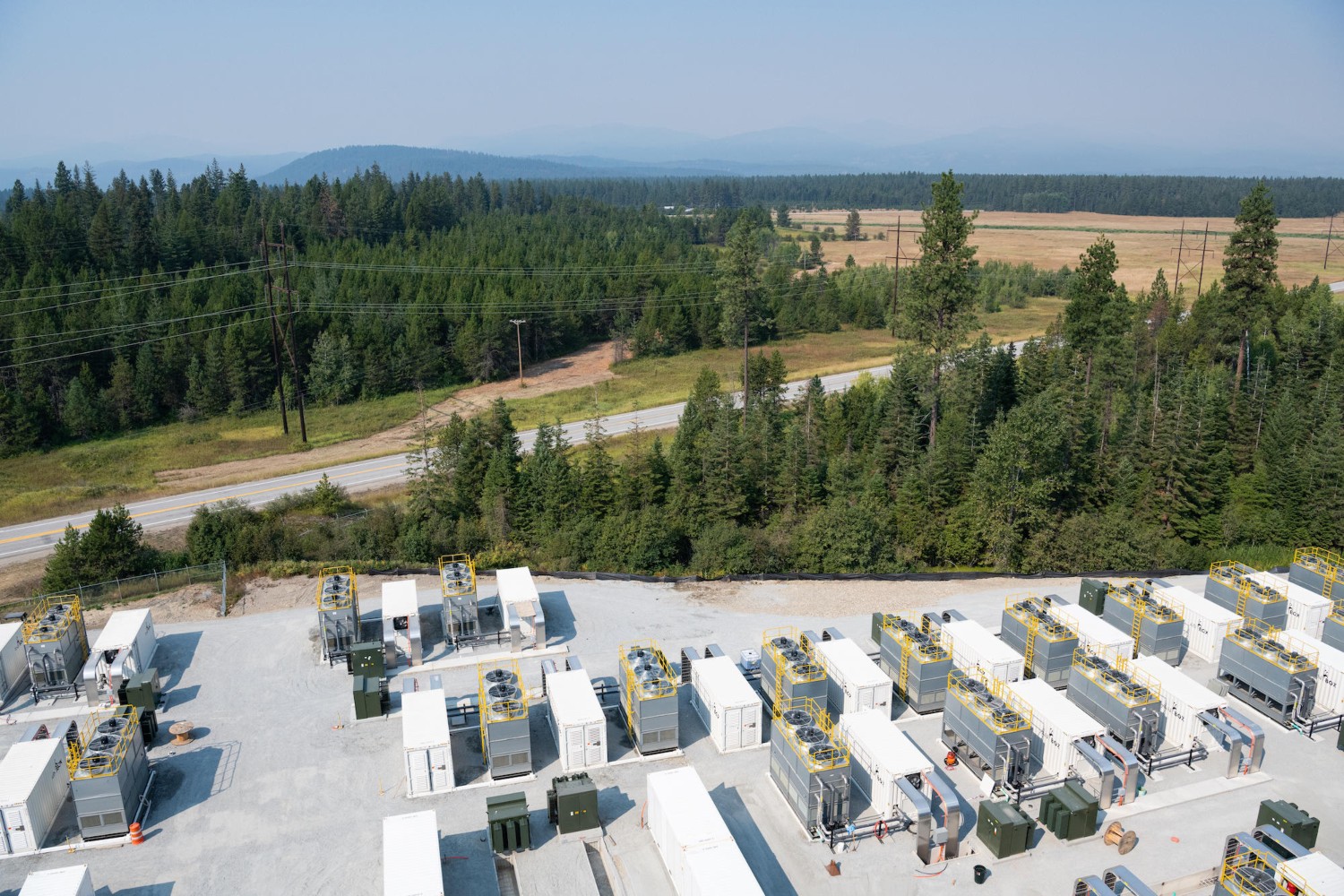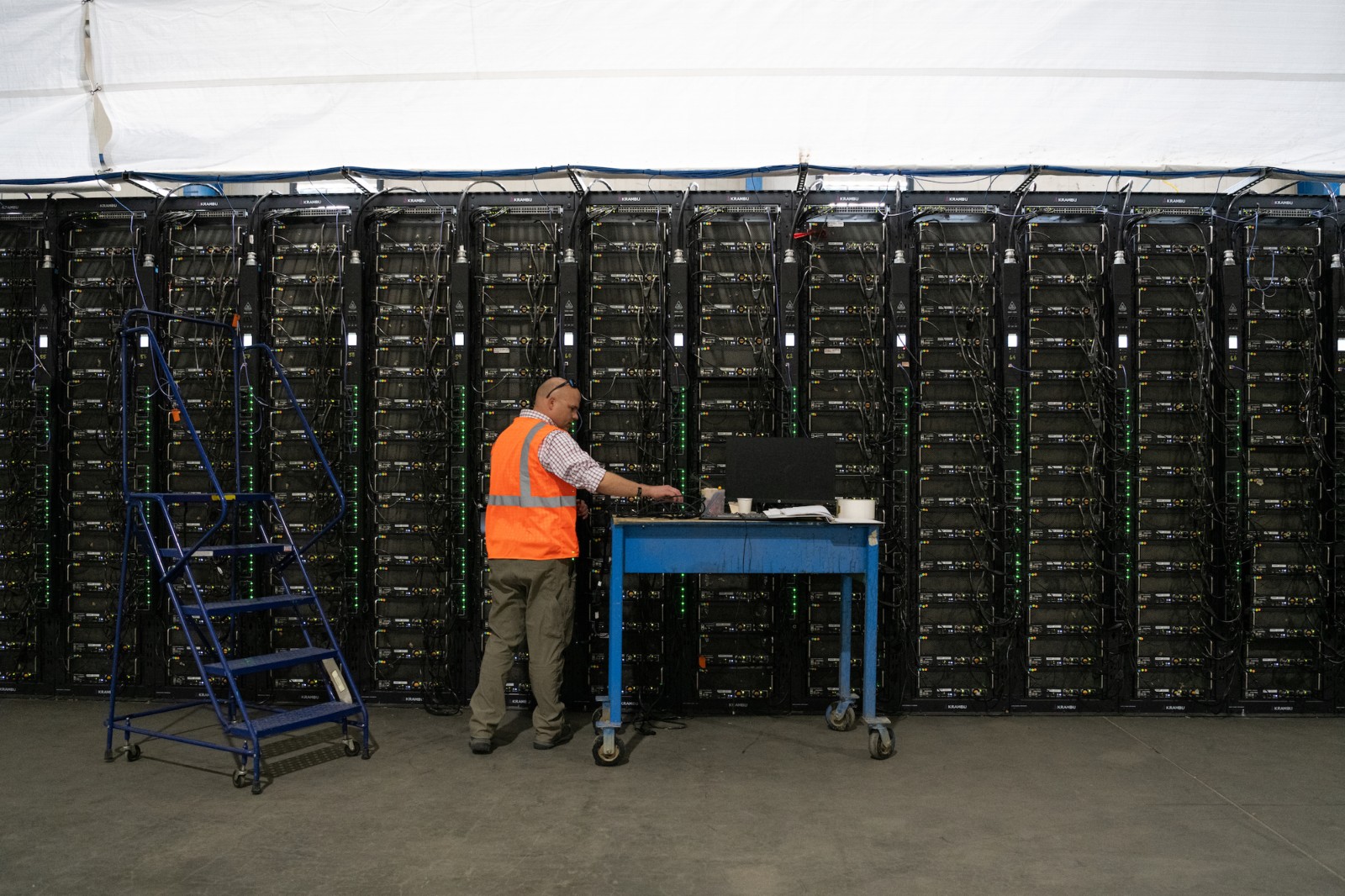Amazon opposition, community outcry kill Oregon bill
By Kaylee Tornay / InvestigateWest
Proposals in Oregon and Washington to regulate carbon emissions tied to crypto mining and data centers took opposite paths during the 2023 legislative session.
In Washington, House Bill 1416 sailed through the House and Senate with relative ease and was signed by Gov. Jay Inslee on May 3. The new law mandates that customers of rural utility districts curb the emissions from any electricity they buy on the market, in line with the timelines approved in the state’s Clean Energy Transformation Act.
In Oregon, meanwhile, House Bill 2816 died last month. The bill sought to impose the emissions reduction timelines laid out in Oregon’s 2021 climate law on crypto miners and data centers. Much of the opposition came from the areas with established data centers and crypto operations.
Both crypto mining operations and data centers use enormous amounts of electricity. Crypto mining has also been scrutinized for instances when miners discharged heated water back into lakes after it was circulated through server farms, prompting worries about fish death and algae blooms, and how, in some cases, demands from crypto prompted closed coal plants to reopen.
Oregon state Rep. Pam Marsh, D-Southern Jackson County, who sponsored the bill, said Amazon, which operates several data centers in eastern Oregon, lobbied against the bill and organized opposition in the community. She said she also faced misconceptions about the proposal, including fears it was the first step down a slippery slope to regulating a class of utilities that were specifically exempted from the climate legislation. Her attempts to address opponents’ concerns, she said, didn’t change the response to the bill.
“We laid out the issue,” Marsh said. “Rather than pushing what was going to be a very contentious conversation … we decided to regroup, come back and talk about it.”
The two bills weren’t exactly alike. Washington’s 2018 law to phase out non-renewable energy use, the Clean Energy Transformation Act, had already applied to rural, consumer-owned utilities as well as large utilities. Rep. Beth Doglio, D-Olympia, who sponsored House Bill 1416, wanted to close a loophole that some crypto mining operations could exploit, which allows them to buy power on the market from non-renewable sources if the hydroelectric-powered local utility can’t satisfy their demand.
But there was another difference: In Washington, the legislation didn’t have an impact on any Amazon data centers, since the electric utilities the company relies on are already subject to emissions regulations under the state’s clean energy laws.
“I’m just glad we got it done this year, considering what happened in Oregon,” Doglio said.
New regulatory territory
Although crypto mining and data centers have come under fire over the past decade for their high energy use, they’ve been subject to few climate-related regulations in either Oregon or Washington.
Instead, many companies, including Apple, Microsoft and the newer generation of crypto miners, have set their own climate goals to be carbon-negative by a certain year.
Amazon, for example, said on April 4 that it struck a new deal with the Umatilla Electric Cooperative that will increase its renewable power purchases. Amazon claimed its data centers in Oregon are already powered with 95% renewable energy, and will reach 100% by 2025.
Umatilla Electric Cooperative is the utility that serves Amazon facilities in eastern Oregon. It is consumer-owned, one of the smaller electrical utilities that were exempted from Oregon’s emissions standards in the 2019 climate law. They largely rely on hydroelectric power from the Bonneville Power Administration, but the Oregonian/Oregonlive has reported that carbon emissions per megawatt hour from Umatilla Electric Cooperative increased by 543% from 2010 to 2020, a decade in which Amazon built four facilities that use enough power to serve 200,000 homes. The increase in emissions, according to the report, was related to the utility’s purchases of power on the market, often from coal-powered sources.
“That’s what spurred this,” Marsh said. “Because the energy they’re bringing in was dirty energy. (The utilities) really need these data centers to take some responsibility for their energy production or else they’re going to increasingly be moving away from their (hydroelectric) allocation.”
Marsh’s bill would have required all future Oregon data centers and large-scale crypto miners to power their facilities with 80% clean energy by 2030, and 100% by 2040. That’s in line with the timelines that investor-owned utilities are already subject to.
An Amazon spokesperson said the company objected to Marsh’s bill “because it did not address the build-out of electric infrastructure that is needed to bring more clean energy to the grid.”
Marsh said she disagrees.
“It is the setting of the objectives that drives the infrastructure and investment that gets to that point,” she said.
But residents who opposed the legislation said it was unfairly targeting important industries in their communities.
Paul Anderes, Union County commissioner and chair of the Eastern Oregon Counties Association, said in written testimony that the bill “would threaten our member counties(‘) ability to leverage our unique geography and proximity to renewable power and eliminate one of the few job-growth and community building opportunities we so desperately need.”
Planning for the future
In Washington, the bill that state energy officials brought forward to deal with effectively the same potential problem found friendlier audiences.
Glenn Blackmon, energy policy manager for the Washington Office of Energy, said he thinks the fact that consumer-owned utilities were already included in the Clean Energy Transformation Act is the main reason for the different treatment.
“In Washington, the purpose … was to hold a non-residential industrial customer to the same standards as the rest of the community was held to,” Blackmon said. “We wanted to make sure if one of these operations goes around its utility (to buy power on the market), that they can’t do that for reasons of evading the clean electricity requirements.”
Back in Oregon, Marsh said she’s not yet clear on the best way to address carbon emissions tied to the tech industry. But she said she is hopeful the bill would get further if she brings a version back in a future session.
“This really got us thinking about … how important it is that (data centers and crypto miners) are joining us in our clean energy goals,” Marsh said. “And the second conversation we want to have is how to support the (rural utilities) as we move further into the clean energy future, so that as their demand grows they can still be providing good energy to their communities.”
FEATURED IMAGE: Interior of the liquid-cooled Ant Boxes at the Merkle Standard cryptocurrency mining facility in Usk, Wash., on Friday, Sept. 9, 2022. (Erick Doxey/InvestigateWest)
CLARIFICATION: This story has been updated to clarify Amazon’s climate goals in relation to its deal with Umatilla Electric Cooperative.
InvestigateWest (invw.org) is an independent news nonprofit dedicated to investigative journalism in the Pacific Northwest. Reach reporter Kaylee Tornay at kaylee@invw.org.





